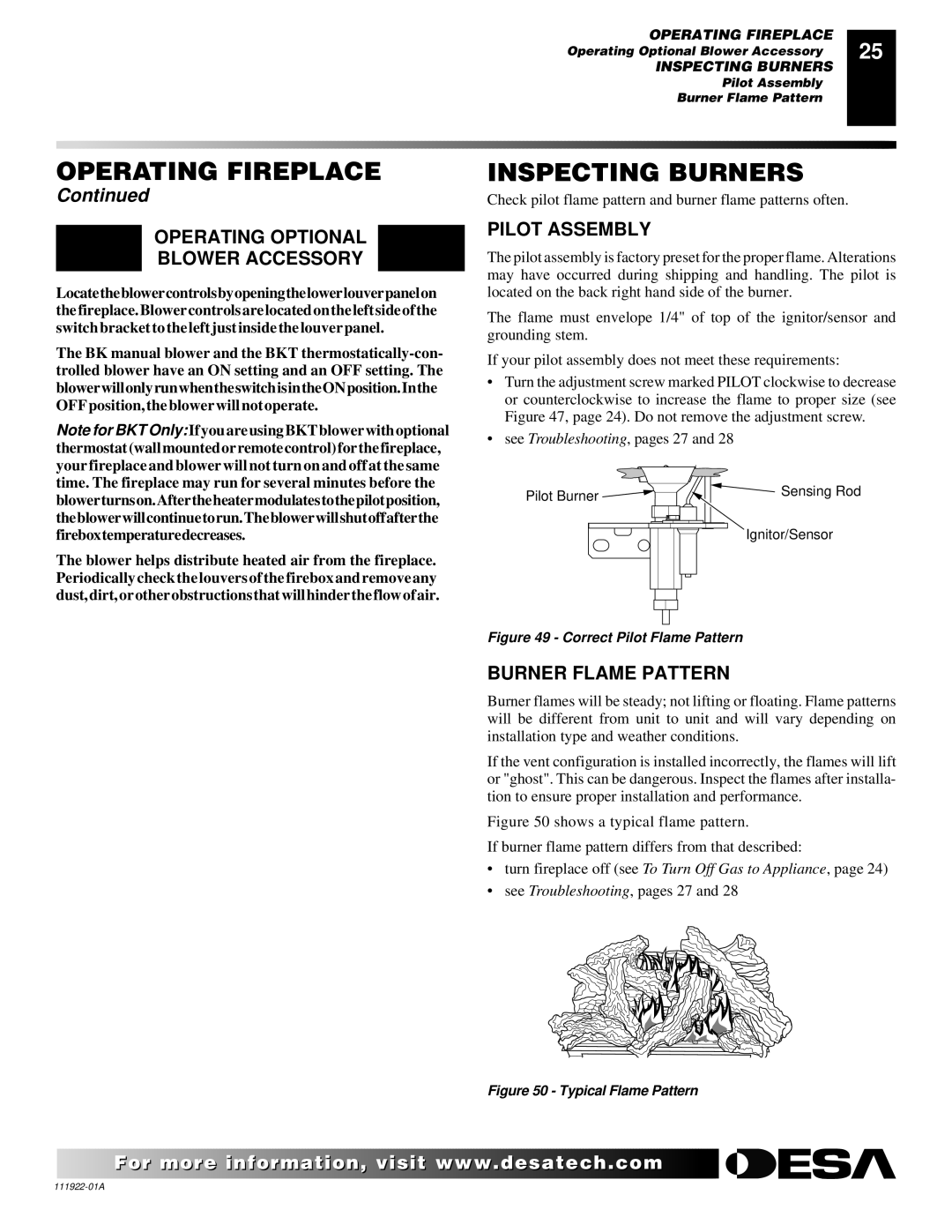
OPERATING FIREPLACE
Continued
OPERATING OPTIONAL
BLOWER ACCESSORY
Locatetheblowercontrolsbyopeningthelowerlouverpanelon the fireplace. Blower controls are located on the left side of the switch bracket to the left just inside the louver panel.
The BK manual blower and the BKT
Note for BKT Only:If you are using BKT blower with optional thermostat (wall mounted or remote control) for the fireplace, your fireplace and blower will not turn on and off at the same time. The fireplace may run for several minutes before the blowerturnson.Aftertheheatermodulatestothepilotposition, theblowerwillcontinuetorun.Theblowerwillshutoffafterthe fireboxtemperaturedecreases.
The blower helps distribute heated air from the fireplace. Periodically check the louvers of the firebox and remove any dust, dirt, or other obstructions that will hinder the flow of air.
OPERATING FIREPLACE | 25 |
Operating Optional Blower Accessory | |
INSPECTING BURNERS |
|
Pilot Assembly |
|
Burner Flame Pattern |
|
|
|
INSPECTING BURNERS
Check pilot flame pattern and burner flame patterns often.
PILOT ASSEMBLY
The pilot assembly is factory preset for the proper flame. Alterations may have occurred during shipping and handling. The pilot is located on the back right hand side of the burner.
The flame must envelope 1/4" of top of the ignitor/sensor and grounding stem.
If your pilot assembly does not meet these requirements:
•Turn the adjustment screw marked PILOT clockwise to decrease or counterclockwise to increase the flame to proper size (see Figure 47, page 24). Do not remove the adjustment screw.
•see Troubleshooting, pages 27 and 28
Pilot Burner | Sensing Rod |
| |
| Ignitor/Sensor |
Figure 49 - Correct Pilot Flame Pattern
BURNER FLAME PATTERN
Burner flames will be steady; not lifting or floating. Flame patterns will be different from unit to unit and will vary depending on installation type and weather conditions.
If the vent configuration is installed incorrectly, the flames will lift or "ghost". This can be dangerous. Inspect the flames after installa- tion to ensure proper installation and performance.
Figure 50 shows a typical flame pattern.
If burner flame pattern differs from that described:
•turn fireplace off (see To Turn Off Gas to Appliance, page 24)
•see Troubleshooting, pages 27 and 28
Figure 50 - Typical Flame Pattern
![]() For more
For more![]()
![]()
![]() visit www.
visit www.![]()
![]()
![]() .com
.com![]()
![]()
![]()
![]()
![]()
![]()
